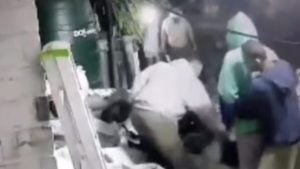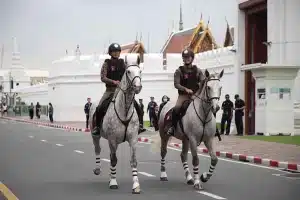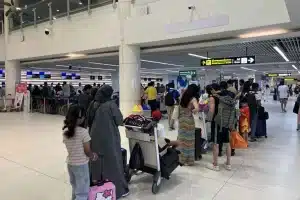Police gain power to halt slow-walk protests, sparking authoritarianism fears

The UK House of Commons has granted police additional authority to address slow-walking protests, a decision that has sparked concerns about the government’s shift towards authoritarianism. The new measures, which redefine “serious disruption,” were approved by a majority of 60 votes. Home Secretary Suella Braverman claims that these changes will enable law enforcement to better manage harmful protests and clarify when they can intervene to stop demonstrations. However, critics, including Labour MP Richard Burgon and SNP cabinet member Alison Thewliss, argue that this move represents an “authoritarian clampdown” and a step towards “fascism.”
The decision comes in light of protests by environmental groups such as Just Stop Oil (JSO), Insulate Britain, and Extinction Rebellion. The government asserts that these groups’ tactics, which include blocking roads, slow marching, and gluing themselves to objects, are costing taxpayers millions and diverting police resources from more severe crimes. Braverman informed MPs that JSO’s protests alone required over 13,770 police officer shifts and cost taxpayers £4.5 million in just six weeks, in addition to the £14 million spent last year.
The controversial Public Order Act, passed in May, introduced new offences for “locking on” or being equipped to do so, as well as for tunnelling and obstructing transport works. The proposed changes would lower the threshold for serious disruption from “significant” and “prolonged” to “more than minor.” Furthermore, the new regulations would consider the cumulative impact of repeated protests and broaden the definition of “community” to include any affected citizens, not just those living or working nearby.
Opposition parties heavily criticised the proposals. Shadow home secretary Yvette Cooper argued that existing laws already address slow walk road protests, and the new measures would make it more challenging for peaceful campaigners to organise limited protests. Green Party MP Caroline Lucas called the regulations “oppressive, anti-democratic and downright wrong.” However, DUP MP Sammy Wilson dismissed these concerns as “exaggerated” and not indicative of fascism.
The House of Lords is set to vote on the changes on Tuesday. The upper chamber previously rejected the measures when the government attempted to include them in the Public Order Bill in February. The regulations have been reintroduced to Parliament, a move that has drawn criticism from the House of Lords. Labour peer Lord Coaker claims the government has not addressed concerns about the proposals, while Green Party’s Barones Jones has submitted a “fatal motion” to block the changes.
Latest Thailand News
Follow The Thaiger on Google News:
























